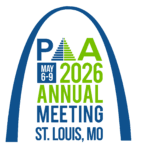CSDE Welcomes 3 New Affiliates
|
CSDE is pleased to introduce three of our new UW Research Affiliates! Hyungmin Cha (Assistant Professor, Sociology) is a demographer and medical sociologist whose research investigates how socioeconomic resources and family ties shape health inequalities across the life course. Raheem Chaudhry’s (Assistant Professor, Evans School of Public Policy) research focuses on how public policy and political institutions can expand access to opportunity for all individuals, particularly those from disadvantaged and historically marginalized communities. José Alavez's (Assistant Professor, Geography) research brings together critical cartography, digital humanities, pluriversal design principles, and Global South approaches to transnationalism, exile, and diaspora. Learn more about each affiliate in the full story!
(read more) |
 |
2025 Applied Research Fellows Study Accessibility for King County Parks
|
Each summer, CSDE and the Population Health Initiative collaborate with CSDE External Affiliate Rebeccah Maskin (King County Demographer) to offer the interdisciplinary Applied Research Fellowship Program for UW undergraduates and graduate students. This summer, the Applied Research Fellowship team worked with stakeholders at King County Department of Natural Resources and Parks to assess accessibility of parks in urban unincorporated areas.
The team explored different measures of accessibility, eventually using spatial isochrone analysis that calculates walking distance based on walking speed and existing street and walkway infrastructure. Spatial cluster analysis of park access by Census block group identified low-access park clusters in urban areas of southwest King County. The team also conducted an on-the-ground assessment of park facilities, signage, and general accessibility at Dick Thurnau Memorial Park in White Center with informal interviews of park users. See their final presentation and report for more details.
The team was led by CSDE Research Scientist Jessica Godwin included 3 graduate students and 2 undergraduates:
- Xinyuan Hao (MPH student, Environmental Health),
- Mark Nepf (PhD student, Evans School and CSDE Trainee),
- Annie Xu (PhD student, Psychology),
- Sarah Desai (Senior, Anthropology, Environmental Studies), and
- Nupur Gorkar (Senior, Human Centered Design & Engineering).
(read more) |
 |
Knox and Jones-Smith Featured in Seattle News Outlets About Research on Healthy Food Benefit Programs
|
CSDE UW Affiliate Melissa Knox (Economics) and CSDE External Affiliate Jessica Jones-Smith (UC Irvine) recently published a research article in JAMA Network Open titled, “Healthy Food Benefit Programs, Fruit and Vegetable Consumption, and Food Security,” that was featured in the Seattle Times, UW News, the Seattle Medium, and Greenspace. Programs that make fruit and vegetables more accessible and improve food security for low-income families have the potential to reduce health disparities and improve population health. Fresh Bucks is a $40/month healthy food program that helps Seattle neighbors afford fruits and vegetables. Dr. Knox, Dr. Jones-Smith, and their co-authors’ research shows that Fresh Bucks households experience a 31% higher rate of food security, they consume at least three daily servings of fruits and vegetables 37% more often than those assigned to a program waitlist, and other important data. To read the full study, visit this link.
(read more) |
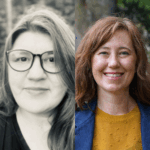 |
Sutton, Hagopian, and Almquist Publish Article on Homelessness, Tent Encampments, and Proximity to Amenities in Seattle
|
CSDE External Affiliate and former T32 Fellow Aja Sutton (Portland State University), CSDE UW Affiliates Amy Hagopian (Health Systems and Population Health) and Zack Almquist (Sociology), and co-author Whitney Walker (ETS REACH), recently published a research article in Cities: the International Journal of Urban Policy and Planning, titled, “Encampments as neighbors: Encampment location and proximity to amenities among Seattle, WA’s unhoused population.” In this article, they investigate how Seattle encampments’ proximity to basic amenities compares to those in emergency shelters and rental units using rich spatial, administrative, and outreach worker data from Evergreen Treatment Services (ETS) REACH. They also discuss the implications of providing effective support for people living unhoused, and present what is likely the most comprehensive and recent study of Seattle neighborhood amenities proximity among the unsheltered population. To read the full research article, visit this link.
(read more) |
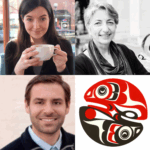 |
Knox Speaks at Mayor Harrell’s Press Conference on Significant Investment in Food Access in 2026 Budget
|
On Thursday, September 4th, Mayor Bruce Harrell gave a press conference at the Lake City Farmers Market to preview millions in proposed investments as part of his 2026 budget, focused on expanding access to healthy, affordable food across Seattle. Part of that investment is the Fresh Bucks Program, a $40/month healthy food program that helps Seattle neighbors afford fruits and vegetables. Mayor Harrell proposed an expansion of Fresh Bucks with a $6 million investment that would expand the monthly stipend by 50% to $60/month, get the 4,000 people who are waiting to be a part of this program off the waitlist, and take the program participants from 12,000 to 16,000. At the press conference, CSDE UW Affiliate Melissa Knox (Economics) shared her and her team’s research findings on the Fresh Bucks program. Dr. Knox and team surveyed around 2,000 households who were part of the program or on the waitlist and found findings such as Fresh Bucks households experience a 31% higher rate of food security. Dr. Knox states, “at the end of the day, our study, our numbers, told a pretty simple story. When Seattle invests in programs like Fresh Bucks, they make it possible for individuals and families to worry less where their next meals are coming from, and they can focus more on living a healthier life.” To watch the full press conference and to listen to Dr. Knox’s findings, visit this link.
(read more) |
 |
Curran, Dorélien, and Zagheni Nominated for IUSSP Council Member Elections
|
CSDE Director Sara Curran, CSDE Training Core PI and Research Affiliate Audrey Dorélien (Sociology), and CSDE External Affiliate Emilio Zagheni (Max Planck Institute for Demographic Research) are all candidates proposed by the International Union for the Scientific Study of Population (IUSSP) Committee for the IUSSP Officers and Council members for 2026-2029. Dr. Curran is nominated for Council Member for North America, Dr. Dorélien is nominated for Council Member at large, and Dr. Zagheni is nominated for Vice President. Elections will take place from September 15th, 2025 to October 27th, 2025. To view the full list of nominees and for more information, visit this link. Congratulations to Dr. Curran, Dr. Dorélien, and Dr. Zagheni on your nominations!
(read more) |
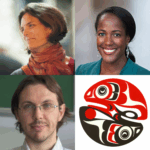 |
|
|
Feminist Demographers Sponsor PAA Session – Please Submit your Proposal
|
Feminist Demography has a special session on the upcoming program for the PAA titled: Heterodox, Feminist, and Critical Perspectives on Demography.” The session #917 can be found in the Call for Papers. This brand new session provides an opportunity for critical scholars of and in population studies to contribute their knowledge at our field’s flagship annual meeting. To learn a bit more about what feminist demography is and how you can contribute to this emerging subfield, please visit their website at feministdemography.org.
(read more) |
 |
Office on Violence Against Women Funding for the Research & Evaluation Initiative – Now Accepting Applications! (Due 09/25/25)
|
The Fiscal Year (FY) 2025 R&E Initiative NOFO is open! On behalf of the Department of Justice Office on Violence Against Women (OVW), we are reaching out with information you and your organization may be interested in regarding OVW’s Research and Evaluation (R&E) Initiative.
OVW’s R&E Initiative is designed to study approaches to addressing and preventing domestic violence, sexual assault, dating violence, and stalking. By studying the efficacy of strategies for serving victims and holding offenders accountable, the R&E Initiative helps communities assess their current programs and adopt proven strategies. The initiative is designed to support researcher-practitioner partnerships and a broad range of research and evaluation methods, including qualitative, mixed-method, quasi-experimental, and experimental designs.
- Application deadline for Grants.gov: September 23, 2025 – 11:59 p.m. ET
- Application deadline for JustGrants: September 25, 2025 – 8:59 p.m. ET
(read more) |
 |
*New* UW Libraries Webinar – Allowable Publishing Costs: Demystifying NIH’s RFI on Limiting Article Publishing Coverage (09/09/25)
|
Allowable Publishing Costs: Demystifying NIH’s RFI on limiting article publishing charge coverage (Zoom)
Tuesday, September 9th from 4:00-5:00pm Sign Up to Attend
The UW Libraries is hosting a webinar on the National Institutes of Health (NIH) proposal to limit the amount of grant funding that could be contributed to publication costs. The recent Request for Information (RFI) on Maximizing Research Funds by Limiting Allowable Publishing Cost includes options ranging from no longer supporting publication costs to limiting how much of an award could be used towards publication costs. Join them for an informational panel to explore the purpose and scope of the NIH RFI, demystify the options presented, and hear varying perspectives on approaches for responses--all to help position you to write your own response to the RFI. Colleagues from all fields are welcome, noting that other federal agencies may model their policies on those of NIH.
(read more) |
 |
CSSCR Workshop – Analyze Questionnaire Responses: An Introduction to Item Response Theory (09/11/25)
|
Description: Item response theory (IRT) is a powerful framework for analyzing questionnaire and test data. This introductory workshop will guide participants through the key concepts of IRT and results interpretation. Ideal for researchers and students who work with questionnaires and surveys. No prior IRT experience required.
- Instructor: He Ren, CSSCR Consultant
- Date: Thursday, September 11, 2025
- Time: 1:00pm – 2:50pm
- Location: Savery 117 (Big Lab)
- Register here.
(read more) |
 |
*New* UAPS Call for Expression of Interest – Adolescent and Youth Scientific Panel (09/12/25)
|
Applications are now open for the Adolescent and Youth Scientific Panel
(read more) |
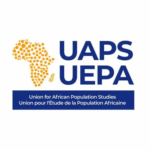 |
*New* Call for Applications – Graduate Student Equity and Excellence (GSEE) Final Year Dissertation Award (09/15/25)
|
The office of Graduate Student Equity and Excellence (GSEE) is offering a funding opportunity for UW graduate students who are in their final year of their doctoral dissertation. Below is a brief description of the award and the full description can be found on the award webpage.
Please note that students apply for this award directly through the MyGrad system for students. Funding will be disbursed this upcoming academic year (2025-26).
(read more) |
 |
Center for Migration Studies 2025 Immigrant Integration Convening (09/14/25 – 09/16/25)
|
2025 Immigrant Integration Convening
September 14, 2025 01:00 PM (ET) – September 16, 2025 01:00 PM (ET)
Supporting Migrants and Refugees: Finding Hope in a Time of Peril
The Center for Migration Studies of New York (CMS) and Fordham University will host the 2025 Immigrant Integration Convening, Supporting Migrants and Refugees: Finding Hope in a Time of Peril. The 3 day convening will focus on the immigration challenges of today and how the Catholic community can support migrants and refugees to advance human dignity and the common good. Attendees will include Catholic policy experts, advocates, service providers, parishes, students, and others. Register for tickets here
(read more) |
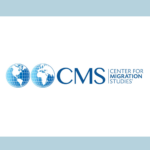 |
IPUMS Population Data Virtual Office Hours (09/17/25)
|
September 17; 10:00-11:30am CT
Join us for virtual office hours to discuss your questions with IPUMS data experts. In this session, we will be joined by special data guest SHADAC, a leading source of state health policy data and information. SHADAC is widely known for its State Health Compare tool, though IPUMS users may be more familiar with the health insurance unit variables they create for IPUMS USA and IPUMS CPS. Registration is required to attend virtual office hours, but you can drop in anytime between 10:00am and 11:30am CT.
(read more) |
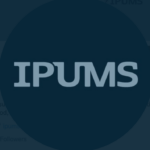 |
*New* UAPS Webinar – People, Planet, and Policy: Exploring the Nexus of Population Dynamics and Climate Change in Africa on September 18th (Register Deadline 09/16/25)
|
Join UAPS for an insightful exploration of the complex relationships between population dynamics and climate change across the African continent.
This webinar will examine how demographic trends intersect with environmental challenges and policy responses, offering a comprehensive understanding of one of the most critical issues facing Africa today.
Webinar Details
- Webinar Date & Time: 18th September 2025 – 14:00 – 15:30 UTC
- Duration: 90 minutes
- Format: Interactive presentation with Q&A session
- Platform: Zoom Webinar
- Registration Information: Registration is free and open to all interested participants – click on link to register https://us06web.zoom.us/webinar/register/WN_R1CyJlO7SnaQTx0iDdqImg
- Language: Simultaneous interpretation will be available in English and French
- Registration deadline: 16th September 2025 or when 200 participants limit is reached
NOTE: Only 200 spots available – Register now to secure your place
(read more) |
 |
*New* Virtual Lecture: Stefanie DeLuca on “Creating Moves to Opportunity: Mixed Methods Evidence on Barriers to Neighborhood Choice” (09/25/25)
|
Creating Moves to Opportunity: Mixed Methods Evidence on Barriers to Neighborhood Choice - A talk by: Stefanie DeLuca, Johns Hopkins University
Thursday, September 25, 2025 - 3:00 – 4:00 p.m. Eastern, via Zoom
Low-income families often live in neighborhoods with fewer opportunities to get ahead, even when they have housing vouchers that would allow them to move to neighborhoods with more potential for upward mobility. In this SSRC lecture, Johns Hopkins sociologist Stefanie DeLuca will explore why through two randomized interventions. In these experiments, housing voucher recipients were given varying levels of information, financial support, and customized search assistance to move to higher-opportunity neighborhoods.
(read more) |
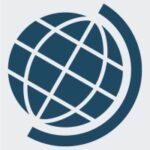 |
*New* Webinar: Opportunities for Doing Social-Environmental Research with Little to No Funding (09/22/25)
|
WEBINAR: Opportunities for Doing Social-Environmental Research with Little to No Funding (Virtual Event)
When: Monday, September 22nd (9:00AM – 12:00PM ET / 6:00AM – 9:00AM PT)
Graduate students, post-docs, and early-career faculty engaged in social-environmental research face an unprecedented research landscape. Decreased federal research funding will constrain their ability to continue their personal research programs, from dissertations to faculty research plans. Low-cost primary data collection, re-analysis of secondary data, creative use of available datasets, meta-analysis of existing studies, and localized field work can all be potential solutions.
Register Here
(read more) |
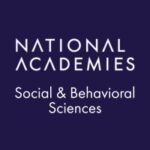 |
Royalty Research Fund Proposals Due September 29th
|
The Office of Research invites applications for the next round of the Royalty Research Fund (RRF) grant program. Proposals are due to RRF Monday, September 29, by 5:00 PM. Departments and Colleges/Schools may have earlier deadlines, so all applicants are advised to check with their program’s administrative staff. Awards will be announced by January 15, 2026.
The purpose of the RRF is to advance new directions in faculty research and contribute in substantive ways to the health, creativity, and productivity of the research ecosystem as defined by the University’s Vision Statement: “We discover timely solutions to the world’s most complex problems and enrich the lives of people throughout our community, the state of Washington, the nation, and the world."
The RRF received a Public Records Request in June. The RRF team is responding to the request following UW guidelines. RRF Website.
(read more) |
 |
CACHE – Virtual Center for Aging, Climate and Health Invites Participation and Contributions
|
CSDE and its partners at CUNY, CU Boulder, El Collegio, and University of Minnesota, invites you to participate and contribute. Here are two new data updates:
The CACHE team would like to hear about what you are reading… submit a post here or see posts about what others are reading.
There are many more resources on the CACHE website including links to research matchmaking, workshop recordings, employment opportunities, grant opportunities and much more.
(read more) |
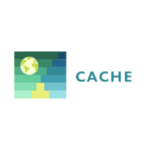 |
Corporate & Foundation Opportunities: Russell Sage Foundation Pipeline Grants Competition (10/1/2025)
|
Pipeline Grants Competition
Organization: Russell Sage Foundation
Award amount: $50,000
Deadline: 10/1/2025
Description: This initiative will support early-career scholars and promote diversity in the social sciences, including racial, ethnic, gender, disciplinary, institutional, and geographic diversity. Pipeline grantees are paired with mentors who offer advice on their projects and career development. The competition funds innovative research on economic mobility and access to opportunity in the United States. We are particularly interested in research focused on structural barriers to economic mobility and how individuals, communities and state entities understand, navigate and challenge systemic inequalities. Early-career faculty who have not previously received research grants (not counting a dissertation grant) or a visiting fellowship from RSF are eligible to apply.
(read more) |
 |
NIH Research on Addressing Violence to Improve Health Outcomes (10/05/2025)
|
The purpose of this Notice is to highlight interest in addressing the role of violence in health outcomes and integrating violence-related screening and interventions into health care settings. This Notice is to encourage intervention research focused on addressing exposure to violence – including but not limited to child maltreatment, intimate partner violence/teen dating violence, elder mistreatment, peer violence/bullying, and community violence – to improve individual-level health processes and outcomes. Read more here.
(read more) |
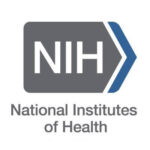 |
Berlin Demography Days 2025: Demography and Democracy (10/27/25 – 10/28/25)
|
Berlin Demography Days 2025: Demography and Democracy
Save the date: 27 and 28 October 2025
The electoral successes of anti-democratic movements cannot be explained solely by the demographic or socio-economic characteristics of individual groups. More decisive are local perceptions of problems and narratives of loss in the context of demographic change. These manifest in a perceived political overload, blame and the supposed failure of ‘established’ politics.
Together with experts from academia, political foundations, and governments, we analyse these demographic trends and discuss practical solutions at the regional and local level. We look forward to welcoming you to this event.
Register here
(read more) |
 |
IPUMS: Caregiving Workshop at GSA (11/12/25)
|
Understanding and addressing the misalignment of care demands between an aging
population and a shortage of healthcare workers in the US requires research-ready data to study caregiving. Join IPUMS and NDIRA the morning of Wednesday, November 12 for a GSA workshop: Population Data for Studying Formal and Informal Caregiving.
- Overview of IPUMS data that are relevant to caregiving
- Demonstrations of features to streamline data management
- Discussions about analytical considerations
- Review of non-caregiving topical coverage in these data
- Guidance on identifying informal caregivers
Please register to join us or circulate this opportunity with your networks. The early bird registration rate for GSA expires on September 3.
(read more) |
 |
Call for Submissions to Discover Global Society – Permutations of Caring (due 12/31/25)
|
Discover Global Society (Springer Nature) is currently welcoming submissions of original research to the “The Permutations of “Caring”: On the Individual, Family, and Societies” Collection, Guest Edited by Prof. JosAnn Cutajar (University of Malta, Malta).
Discover Global Society was launched by Springer Nature in 2023 and indexed in SCOPUS (CiteScore 0.4 [2024]). Discover Global Society is a fully open-access journal, which means that its contents are freely available and can be used by a world audience.
If you are interested in preparing a manuscript for consideration at Discover Global Society as part of this Collection, submissions will be welcomed at any point up until 31 December 2025, but if you are unable to submit a manuscript before this date, please let us know as we may be able to be flexible.
(read more) |
 |
Evidence for Action: Investigator-Initiated Research to Build a Culture of Health (Rolling)
| Introduction & Purpose
Evidence for Action (E4A), a national program of the Robert Wood Johnson Foundation (RWJF), funds research that expands the evidence needed to build a Culture of Health. A Culture of Health is broadly defined as one in which good health and well-being flourish across geographic, demographic, and social sectors; public and private decision-making is guided by the goal of fostering equitable communities; and everyone has the opportunity to make choices that lead to healthy lifestyles. RWJF’s Culture of Health Action Framework, which was developed to catalyze a national movement toward improved health, well-being, and equity, guides E4A’s program strategy.
(read more) |
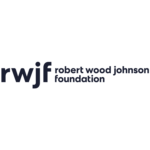 |
Share Your Story: Federal Grant Terminations and Data Restrictions
|
The Population Association of America (PAA) has updated the form used to collect details, on an ongoing basis, from members who have been adversely affected by actions taken by the Administration, including federal grant terminations and data restrictions. The revised form provides guidance and encourages individuals to share their stories, which will be featured in a regular newsletter designed to educate policymakers and the public about the consequences of these federal actions.
Please feel free to share this form with your colleagues.
(read more) |
 |
Survey on Federal Data Use and Repositories
| Recently, the Office of Research sponsored a panel and discussion on the challenges surrounding the loss of data, including data that is removed from publicly available sites, national surveys that are canceled, and standard survey measures or data changed for non-scientific reasons. In addition, the UW Libraries has been actively engaged in helping researchers find and preserve data. This survey, created jointly by the UW Faculty Council on Research (FCR), the UW Libraries, and the Office of Research, seeks to learn more about your research needs in this domain of concerns and challenges. FCR, the Office of Research, and the UW Libraries will summarize the results from this survey over the summer and present to the Faculty Senate in AUT 2025. We will use the survey results to inform efforts to safeguard data needed for research and to educate the UW community on alternative locations for accessing and securely storing data. (read more) |
 |
Data Resource: Dewey Data
|
Dewey Data is a research platform that provides access to third-party datasets across a variety of data categories including foot traffic, construction permits, healthcare, workforce, consumer behavior, and transportation.
University of Washington faculty, students, and researchers are eligible for access and must register an individual account. Follow this link to learn about how to register.
(read more) |
 |
Data Access With Federal Administration’s Transition
|
The challenges of data access during federal administrative transitions can happen every four years. What follows are some resources that might be useful. We will continue to update this blog post with new information. If you have any links that could be helpful, please send csde@uw.edu your updated and helpful information. We know that what follows may not provide you with the exact data you need, so let us know what you need and what’s missing and we can try to find where it is located.
(read more) |
 |
Keeping Up With UW-Relevant Federal Policy Updates and Federal Administration Research Policy
Opportunities to Publish Research Policy Briefs with the Association of Population Centers
|
CSDE is a member of the Association of Population Centers, and through them can offer you or your colleagues the opportunity to have new or forthcoming research that you want to share with policymakers, journalists, educators, or other non-academic audiences. The Population Reference Bureau (PRB), in collaboration with APC, is working to improve the dissemination of population and reproductive health findings. If you have peer-reviewed research on population dynamics, population health, or reproductive health that you would like to share with a broader audience in an easily digestible format, APC and PRB may be able to help. To learn how, visit their website and take a look at recent research policy briefs.
(read more) |
 |
Preprint Opportunities through Association of Population Centers
|
CSDE is a member of the Association of Population Centers and through them can offer you and your colleagues access to their preprint publishing platform. Research Scientists, Postdoctoral affiliates and faculty are invited to submit to the APCA Working Paper Series which gathers and disseminates original population science research papers. These working papers are authored or coauthored by scholars who are faculty or postdoctoral affiliates of the Association of Population Centers (APC) population centers.
(read more) |
 |
Lynde and Harry Bradley Foundation Grants (Rolling)
|
The Bradley Foundation is a private grantmaking foundation that honors the principles and example of its namesakes, Lynde and Harry Bradley, by pursuing a mission to restore, strengthen, and protect the principles and institutions of American exceptionalism. The foundation has a rolling proposal process around grants for its Constitutional Order and Informed Citizens initiatives. Projects should have budgets between $25,000 and $200,000.
(read more) |
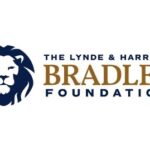 |
Sign up to join the Early Career listserv!
|
We invite early career faculty affiliates to join our new mailing list, csde_earlycareer. Among other things, this is the way to find out info about our quarterly Early Career Affiliate happy hours, and you won’t want to miss those! These will be a great way to meet up with other junior scholars in a fun and casual atmosphere over snacks and drinks. Who counts as early career, you ask? Typically we mean folks who are pre-promotion (i.e. assistant professor or equivalent), but we're not strict! Join the list here (Please note - this is for faculty only - we are strict about that. Sorry, all others!)
(read more) |
 |
|
|

